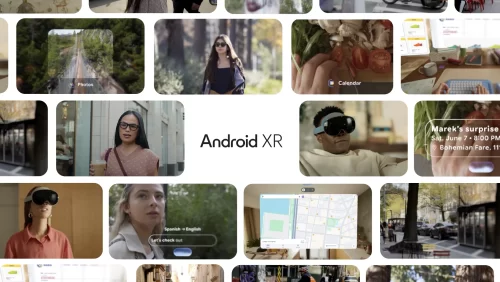
At Google I/O 2025, the company offered its most detailed look yet at smart glasses powered by Android XR and Gemini AI. These next-generation glasses aim to make AI more natural and assistive, bringing helpful features directly into users’ line of sight.
The Android XR platform, first introduced alongside Samsung and Qualcomm earlier this year, has now extended beyond headsets. Google showcased how Android XR glasses work with Gemini to offer a seamless and intelligent on-the-go experience.
Context-Aware AI With Gemini
The glasses use built-in cameras, microphones, and speakers to interpret surroundings and user intent. Paired with your phone, they eliminate the need to pull out a device. An optional in-lens display offers private, context-aware information exactly when needed.
By integrating Gemini, Android XR glasses can see and hear what you do. This gives the assistant the ability to understand your environment, remember important moments, and respond meaningfully. Whether you’re asking for directions, messaging friends, or snapping a photo, the assistant is ready to help — hands-free.
A live demo at Google I/O showed real-time language translation between two people. The glasses offered on-screen subtitles for in-person conversations, hinting at a future where communication across languages becomes effortless.
From Headsets to Stylish Glasses
Google is expanding Android XR from immersive headsets to everyday eyewear. The shift is both technological and design-driven. Recognizing that glasses need to be worn all day to be truly useful, Google is partnering with major fashion-forward eyewear brands.
Gentle Monster and Warby Parker are the first collaborators, aiming to create smart glasses that users will want to wear. Google also confirmed plans to work with Kering Eyewear in the future to broaden style and design choices.
A Platform Built With Partners
Beyond hardware, Google is co-developing a reference platform with Samsung to support Android XR on glasses. The collaboration includes both software and hardware foundations, designed to help the ecosystem create quality wearable devices. Developers will gain access to the platform later this year.
Samsung’s upcoming Project Moohan headset, expected later in 2025, will run Android XR. It’s built to deliver immersive experiences on an “infinite screen” with the help of Gemini, which makes navigating content and multitasking smarter and simpler.
Built for Privacy, Designed for Help
Google has started gathering feedback from trusted testers to ensure the glasses respect user and bystander privacy. The company says its goal is to build a truly assistive product—one that feels helpful without being invasive.
Android XR glasses are part of a broader vision where AI support extends across devices. Google has already shown how Gemini works on phones, watches, TVs, and cars. Now, the assistant is expanding into wearables, sharing your point of view and understanding your world.
With Gemini and Android XR, the goal is to enable natural, hands-free AI assistance across real and virtual environments. Whether you’re at home or on the go, Gemini is now closer than ever—ready to help whenever you need it.
